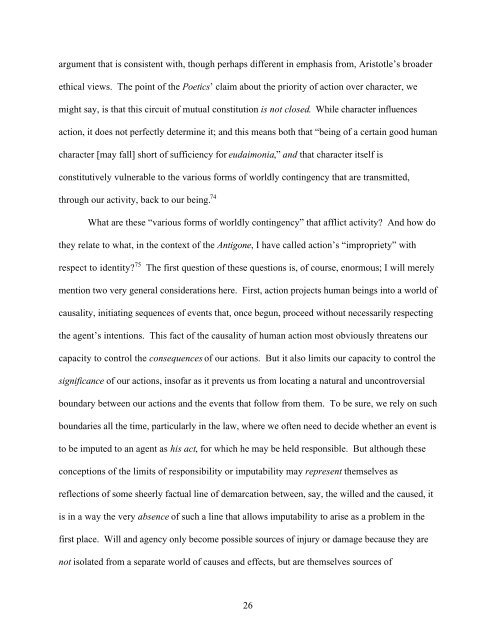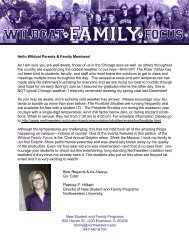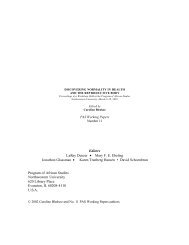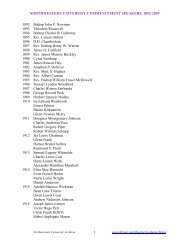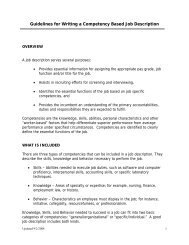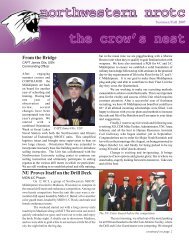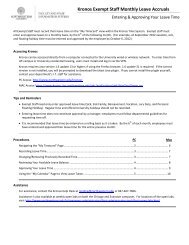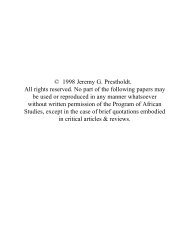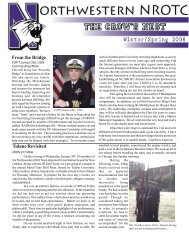TRAGIC RECOGNITION: ACTION AND IDENTITY IN ANTIGONE ...
TRAGIC RECOGNITION: ACTION AND IDENTITY IN ANTIGONE ...
TRAGIC RECOGNITION: ACTION AND IDENTITY IN ANTIGONE ...
You also want an ePaper? Increase the reach of your titles
YUMPU automatically turns print PDFs into web optimized ePapers that Google loves.
argument that is consistent with, though perhaps different in emphasis from, Aristotle’s broader<br />
ethical views. The point of the Poetics’ claim about the priority of action over character, we<br />
might say, is that this circuit of mutual constitution is not closed. While character influences<br />
action, it does not perfectly determine it; and this means both that “being of a certain good human<br />
character [may fall] short of sufficiency for eudaimonia,” and that character itself is<br />
constitutively vulnerable to the various forms of worldly contingency that are transmitted,<br />
through our activity, back to our being. 74<br />
What are these “various forms of worldly contingency” that afflict activity? And how do<br />
they relate to what, in the context of the Antigone, I have called action’s “impropriety” with<br />
respect to identity? 75 The first question of these questions is, of course, enormous; I will merely<br />
mention two very general considerations here. First, action projects human beings into a world of<br />
causality, initiating sequences of events that, once begun, proceed without necessarily respecting<br />
the agent’s intentions. This fact of the causality of human action most obviously threatens our<br />
capacity to control the consequences of our actions. But it also limits our capacity to control the<br />
significance of our actions, insofar as it prevents us from locating a natural and uncontroversial<br />
boundary between our actions and the events that follow from them. To be sure, we rely on such<br />
boundaries all the time, particularly in the law, where we often need to decide whether an event is<br />
to be imputed to an agent as his act, for which he may be held responsible. But although these<br />
conceptions of the limits of responsibility or imputability may represent themselves as<br />
reflections of some sheerly factual line of demarcation between, say, the willed and the caused, it<br />
is in a way the very absence of such a line that allows imputability to arise as a problem in the<br />
first place. Will and agency only become possible sources of injury or damage because they are<br />
not isolated from a separate world of causes and effects, but are themselves sources of<br />
26


